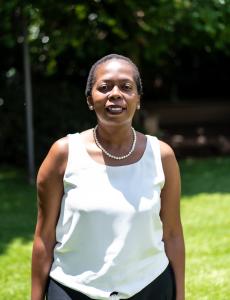Despite the ravages of COVID-19, the year 2021 is special in the calendar of South Africa’s
democratic project. This is because the country celebrates 27 years after attaining democratic rule.
Twenty-seven is a magic number in South Africa. It reflects the number of years that the country’s
founding father, Nelson Mandela, spent incarcerated for fighting apartheid rule. In addition, the
country’s globally acclaimed Constitution is turning 25. The Constitution of the Republic of South
Africa (Act 108) was adopted in 1996 when then Deputy President Thabo Mbeki made the now
infamous ‘I am an African’ speech.1 These milestones offer South Africa an opportunity to pause
and reflect on the country’s democratic project thus far. There are various lenses through which
such an audit can be undertaken. These include processes such as the Judicial Commission of
Inquiry into Allegations of State Capture (Zondo Commission)2 and an economic lens as adopted
by Brian Levy and colleagues at the University of Cape Town.3 This paper seeks to add to the
discourse on gauging the state of South Africa’s democratic project by using a judicial-political
approach. The Judicial Service Commission (JSC) interviews for judges held in April 2021 is used as
a case study to analyse and reflect on the tensions between the judiciary and the other two arms
of government – the executive and the legislature.4
What emerges from the JSC judges’ interviews is that over the last few years the judiciary has had
to assume the role of defending the country’s democratic project due to the dysfunction mainly in
the executive branch but also in the legislature. This was a direct result of the other two arms of
government not upholding their function in the country’s democratic project. Theunis Roux writes
that during the first decade of democracy the Constitutional Court and judiciary, in general, treated
the two arms of government as ‘partners’.5 However, the courts have now assumed a vanguard
role to protect the democratic project against subversion from the other two branches of
government. The interviews, therefore, offer a condensed sense of what has essentially been a
systematic attack on the judiciary since the Jacob Zuma era.



